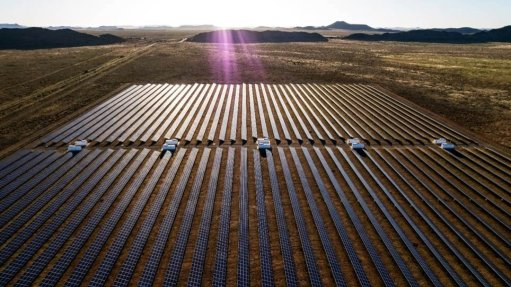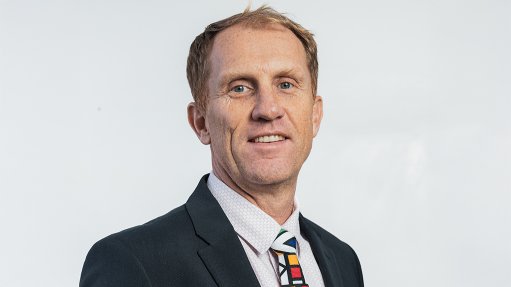Power Africa moves towards its goal of bringing more energy to the continent
Power Africa, which was launched by former US President Barack Obama six years ago, is working towards its target of providing energy access to an additional 60-million new homes and businesses and adding 30 000 MW of cleaner, more efficient electricity generation capacity on the African continent.
So far, the programme, which brings together technical and legal experts, private sector and governments around the world to increase the numbers of people with access to energy, has helped 121 power generation projects that provide a combined capacity of more than 10 000 MW, reach financial close.
Power Africa involves 160 partners, including US government agencies; developments banks, such as the World Bank and the African Development Bank; and the governments of the US, the UK, France, Israel, Japan, Korea and Sweden, besides others.
“We see our role as, side by side with the private sector, to figure out obstacles,” Power Africa coordinator Andrew Herscowitz told the African Utility Week and PowerGEN Africa three-day energy conference and expo in Cape Town this week. One of its recent successes has been to bring electricity to 500 000 people in Nigeria for the first time, and help generate $160-million in new revenues.
“We work with utilities in Nigeria, which has enormous opportunities.”
Nigeria is endowed with large oil, gas, hydro and solar resources and has the potential to generate over 12 500 MW of electric power from existing plants; however, it generally generates only about 4 000 MW.
“Power Africa needs to see how to tap into latent demand. We need to get projects to the people. We need to do more to strengthen utilities, train people on collections and stop the theft,” said Herscowitz. He said utilities needed to improve their internal audit systems.
New business models and upgrading equipment would also be essential. He said there was also much to learn from solar home system companies, which were making money and bringing much-needed light and powering up appliances in poverty-stricken areas.
About 600-million people – or two out of every three people living in Africa – do not have access to electricity.
But Herscowitz cautioned that there needs to be a careful balance of supply and demand in its support of projects.
“We need to ensure that governments have the capacity and ability to pay for this power. We don’t want to saddle them with unsustainable debt,” said Herscowitz.
Power Africa has also been active in South Africa. Power Africa’s interagency partners, the Overseas Private Investment Corporation (OPIC), the US Export-Import Bank, and the US Trade and Development Agency (USTDA) have supported a variety of wind, biomass, solar and natural gas projects at utility scale, as well as other projects.
Power Africa is supporting the City of Johannesburg with a plan to electrify informal housing settlements, using technologies that can be relocated or adapted based on changing needs.
OPIC has also provided $34-million of political risk insurance and $250-million of financing to support the 60 MW Boschoff Solar Park, in the Free State province, which is providing power to the national grid.
Speakers at African Utility Week and PowerGEN Africa have highlighted the trend towards investment in renewable energy projects.
Mark Swilling, programme coordinator for the Sustainable Development Programme in the School of Public Leadership in South Africa said disinvestment in coal had become clear, and financial institutions had been shying away from it.
“The bottom line is that over the last 12 months, 87 of the largest financial institutions in the world have announced a disinvestment in coal. Financial institutions are making long-term risk assessments. The definition of long-term risk has changed fundamentally for every financial institution in the world. The most intelligent policy makers are following the money and investing in renewables,” said Swilling.
Governments are also taking heed, with the Nordic countries taking the lead.
The Deputy Director General of Agriculture and Forestry in Finland, Kai Kaatra, said climate change was the number one issue for the government of Finland. Nordic countries have set aggressive targets for renewable energy to combat carbon emissions.
Article Enquiry
Email Article
Save Article
Feedback
To advertise email advertising@creamermedia.co.za or click here
Announcements
What's On
Subscribe to improve your user experience...
Option 1 (equivalent of R125 a month):
Receive a weekly copy of Creamer Media's Engineering News & Mining Weekly magazine
(print copy for those in South Africa and e-magazine for those outside of South Africa)
Receive daily email newsletters
Access to full search results
Access archive of magazine back copies
Access to Projects in Progress
Access to ONE Research Report of your choice in PDF format
Option 2 (equivalent of R375 a month):
All benefits from Option 1
PLUS
Access to Creamer Media's Research Channel Africa for ALL Research Reports, in PDF format, on various industrial and mining sectors
including Electricity; Water; Energy Transition; Hydrogen; Roads, Rail and Ports; Coal; Gold; Platinum; Battery Metals; etc.
Already a subscriber?
Forgotten your password?
Receive weekly copy of Creamer Media's Engineering News & Mining Weekly magazine (print copy for those in South Africa and e-magazine for those outside of South Africa)
➕
Recieve daily email newsletters
➕
Access to full search results
➕
Access archive of magazine back copies
➕
Access to Projects in Progress
➕
Access to ONE Research Report of your choice in PDF format
RESEARCH CHANNEL AFRICA
R4500 (equivalent of R375 a month)
SUBSCRIBEAll benefits from Option 1
➕
Access to Creamer Media's Research Channel Africa for ALL Research Reports on various industrial and mining sectors, in PDF format, including on:
Electricity
➕
Water
➕
Energy Transition
➕
Hydrogen
➕
Roads, Rail and Ports
➕
Coal
➕
Gold
➕
Platinum
➕
Battery Metals
➕
etc.
Receive all benefits from Option 1 or Option 2 delivered to numerous people at your company
➕
Multiple User names and Passwords for simultaneous log-ins
➕
Intranet integration access to all in your organisation


















